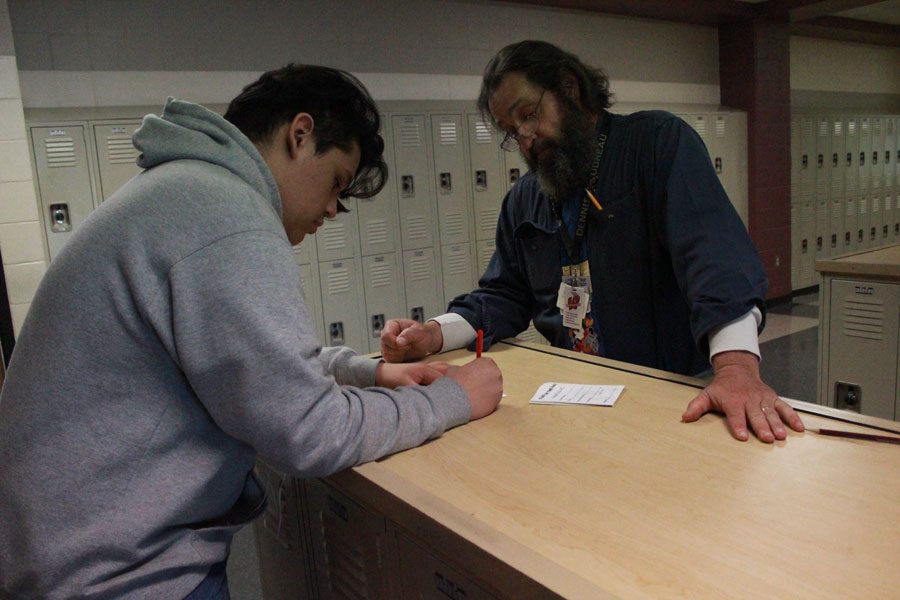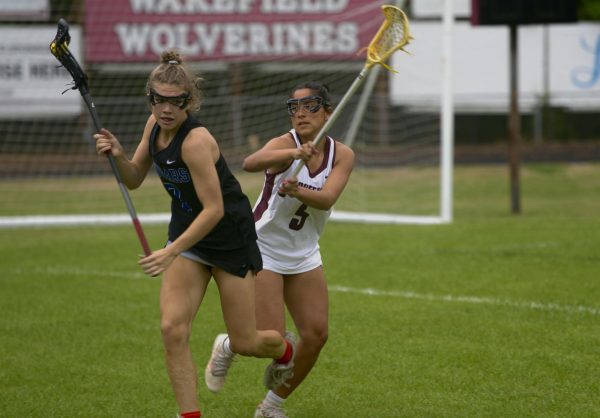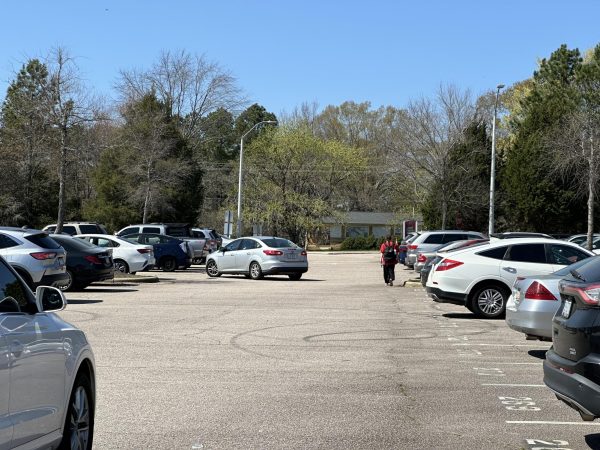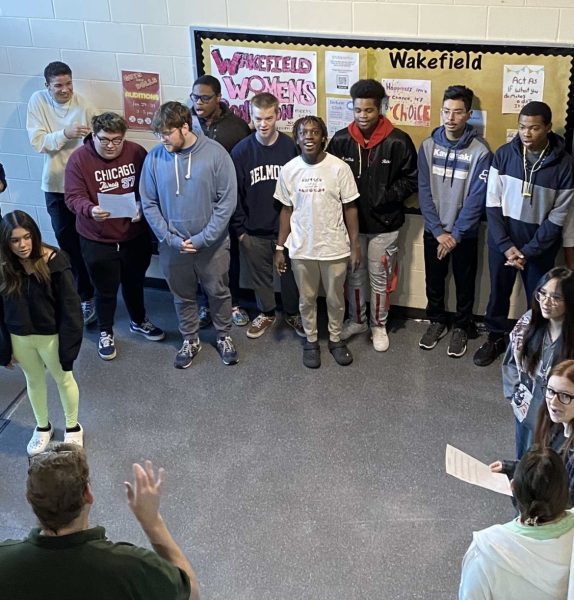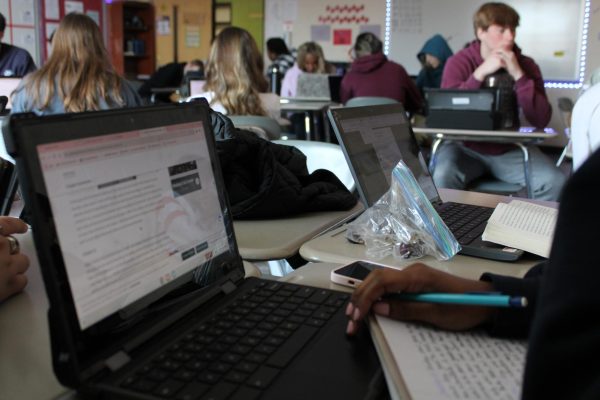Sweeper passes, double Fs make a comeback
Revised attendance policies sweep up tardy students
Mr. Boudreau gives a late student a sweeper pass.
A new semester means new beginnings here at Wakefield. From new classes to new teachers, everyone is undergoing some sort of change. For the administrators, change is their top goal for this semester. Last semester, tardies and absences were an overall problem with over 1000 more absences than last year. Because of this increase in number, the administration has placed new policies in effect to reduce the number of tardies and absences. These policies include the reinstatement of the Double F policy and sweeper passes, along with stricter disciplinary actions for those who have received multiple tardies. Principal Malik Bazzell is a major advocate for these new policies and believes that more students will come to school and on time because of them.
“Last semester, students abused tardies and abused absences,” — Bazzell
Most of these policies aren’t exactly “new.” The Double F policy, which gives students an automatic failure if they reach ten absences in a class, was in effect last year but was taken away at the start of the school year. The sweeper passes were also revoked mainly due to teacher complaints about the process being time-consuming.
“Teachers decided that, to some degree, sweeping was keeping children out of class longer than it should be because of processing them, such as getting all their names and waiting in line with the group,” Bazell said. “So they felt like maybe teachers should do it themselves when the child enters the class. However, there were some inconsistencies. Students believed those who gave tardies were being unfair. This created problems for the teachers who were enforcing the policy.”
Giving out disciplines to those who are frequently late and absent from school is quite a workload and hard to manage. To ensure that these disciplinary actions are managed correctly, Sarah Wrighton, also known as the “tardy lady,” has been appointed to take on this role.
“I love working with children,” Wrighton said. “I really enjoy trying to get them to do the right thing and talk to them about staying on track so they can get out of school.”
Now that these policies are in place, there has been some confusion among staff and students. Misconceptions about these policies are common due to the vast amount of changes in the disciplinary actions that will result from tardies. After a student’s first three tardies, not only will it count as an absence, but the student will also receive a lunch detention. When the sixth tardy is reached, another lunch detention will be given. At the ninth tardy, the consequences are two lunch detentions and a parent contact. The twelfth tardy equals ISS, a parent contact, and a warning of future consequences if the tardies continue. The fifteenth is a referral to administration, reverse suspension, and ALC. Lastly, the eighteenth tardy is OSS.
There have been mixed reactions among the student body towards these strict policies. Some believe it is not giving them the opportunity to be responsible.
“If it is in our own hands to succeed or fail a class, then we shouldn’t have someone telling us to be at school and on time,” senior Allison Parrish said. “At some point, we have to teach the younger generations some sort of responsibility, and them getting themselves to school on time is doing so.”
Others can see the positive side of the policies and believe it will serve to their benefit.
“Having these policies causes me to be more alert,” senior Emmanuel Kiddibu said. “I’m starting to feel a little senioritis coming on, but these rules teach me to be more focused and not fall off the grid.”
While the students have a little work to do so they can decrease their number of tardies and absences, teachers have to put in a little effort as well.
“I think for the most part the average student will be in class if they think the first few minutes matter,” Bazzell said. “If you have a class where the teacher gets started immediately after the bell you’re going to be there because you know you’re going to miss something. The key to solving the tardy problem is to make sure the first part of class is important.”
While there are many strong opinions on these policies, administration strives to keep the students’ best interests in mind. They want to guarantee that students are ready to take on the demanding environment we will face in the near future.
“We’re not trying to be punitive, we’re trying to get the students to see the benefit of being punctual,” Assistant Principal Anson Robinson said. “They are going to be out in the real world, and it is crucial that they are punctual.”




